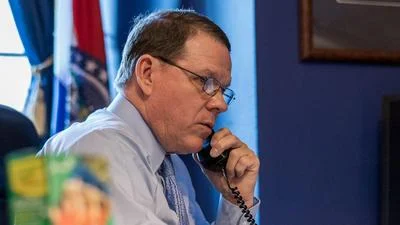Defendants Will Pay $650,000 in Damages and Implement Compliance Measures
Geoffrey S. Berman, the United States Attorney for the Southern District of New York, and Troy Miller, Director, Field Operations New York, U.S. Customs and Border Protection (“CBP"), announced today that the United States has filed and settled a civil fraud lawsuit against MIROGLIO TEXTILE S.R.L. (“MIROGLIO"), an Italian textile manufacturer, and its wholly owned, New York City-based subsidiary, MIROGLIO TEXTILES USA, INC (“MIROGLIO USA"). As alleged in the Government’s complaint, MIROGLIO used sham intermediary “sales" to MIROGLIO USA at fraudulent, artificially low values, in order to underpay customs duties on goods that in fact MIROGLIO sold directly to United States customers at higher prices. Pursuant to the settlement, MIROGLIO and MIROGLIO USA admit and accept responsibility for conduct alleged in the complaint, agree to pay the United States a sum of $650,000, and agree to implement a policy to ensure future compliance with customs laws, including rules governing transactions between related parties like MIROGLIO and MIROGLIO USA. The settlement was approved yesterday by United States District Judge Louis L. Stanton.
U.S. Attorney Geoffrey S. Berman said: “Importers cannot use related-party companies to simply make up values out of whole cloth, but must pay duties based on legitimately reported values. We will be vigilant to ensure that companies pay the customs duties they owe when importing goods into the country."
CBP Field Operations Director Troy Miller said: “The case filed today is a testament to the dedication of our partners in the United States Attorney's Office, Homeland Security Investigations, and our CBP officers, auditors, import specialists, and attorneys in enforcing our nation’s trade laws and punishing those perpetrating this type of fraud."
The Government’s complaint-in-intervention alleges that for each sale of fabric, decals, and other products MIROGLIO made to a customer in the United States, MIROGLIO created a simultaneous sham transaction to its subsidiary MIROGLIO USA at an artificial discount unrelated to any bona fide market factor. MIROGLIO and MIROGLIO USA reported that fraudulent sale to CBP as the basis to calculate duties upon entry of the goods into the United States, which MIROGLIO USA claimed it was then independently reselling to end customers. But MIROGLIO USA never made any legitimate payment for its sham purchases from MIROGLIO, never took any inventory aside from a few sample pieces, and played no role in selecting the end customers or setting the terms of sale. The sham sales by MIROGLIO to MIROGLIO USA existed solely on paper and solely for the purpose of falsely undervaluing goods and reducing the customs duties that would apply. MIROGLIO and MIROGLIO USA also falsely certified to CBP that these fraudulent transactions were not affected by their related-party status.
As part of the settlement, MIROGLIO and MIROGLIO USA agreed to pay $650,000 and to implement a written compliance policy that will include measures to ensure that they properly report related-party transactions and pay duties on the full, actual value of all future imports. In addition, MIROGLIO and MIROGLIO USA admit, acknowledge, and accept responsibility for the following conduct:
* The reported values in the paper transactions between MIROGLIO and MIROGLIO USA were wholly influenced by the two companies’ status as related parties, and were based on an arbitrary discount calculated to reduce customs duties rather than on any legitimate market factors.
* MIROGLIO USA never paid proper consideration and in most cases did not receive or hold the goods that MIROGLIO USA supposedly purchased from MIROGLIO.
* MIROGLIO USA had no meaningful control over the transactions actually underlying the imports in question, as MIROGLIO USA had no authority to determine or negotiate the products to be sold, their prices, or the identity of end customers.
* MIROGLIO and MIROGLIO USA reported the low, artificial prices on CBP entry forms and associated invoices even though MIROGLIO and MIROGLIO USA were aware at all times that the reported information was incorrect. As a result, MIROGLIO and MIROGLIO USA caused an underpayment of customs duties that were due to the United States.
In connection with the filing of the lawsuit and settlement, the Government intervened in a private whistleblower lawsuit that had been filed under seal pursuant to the False Claims Act.
* * *
Mr. Berman thanked CBP for its efforts and ongoing support and assistance with the case.
This case is being handled by the Office’s Civil Frauds Unit. Assistant United States Attorney Stephen Cha-Kim is in charge of the case.
Source: U.S. Department of Justice, Office of the United States Attorneys








